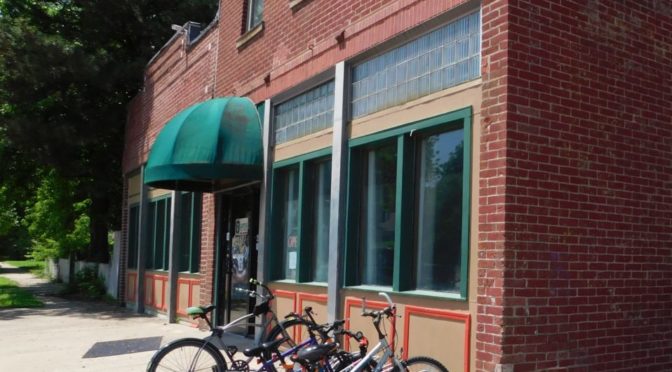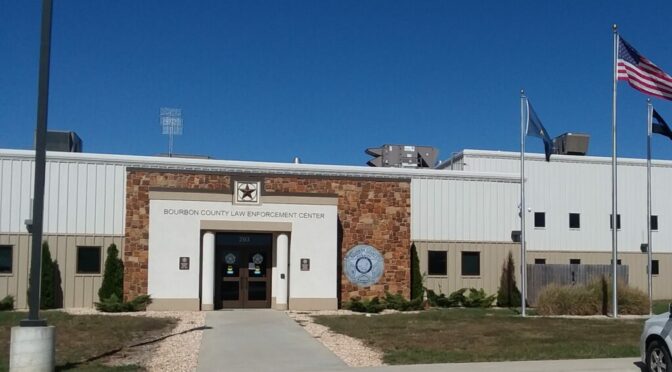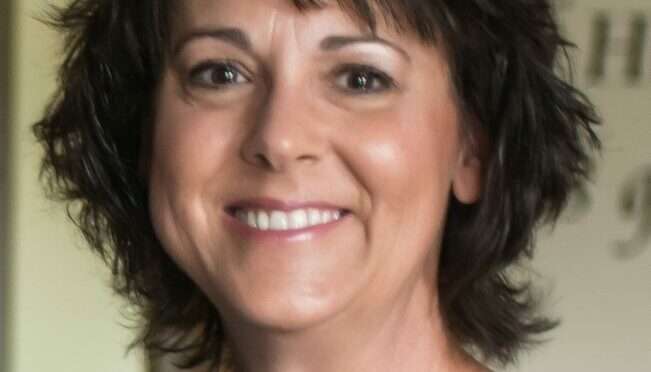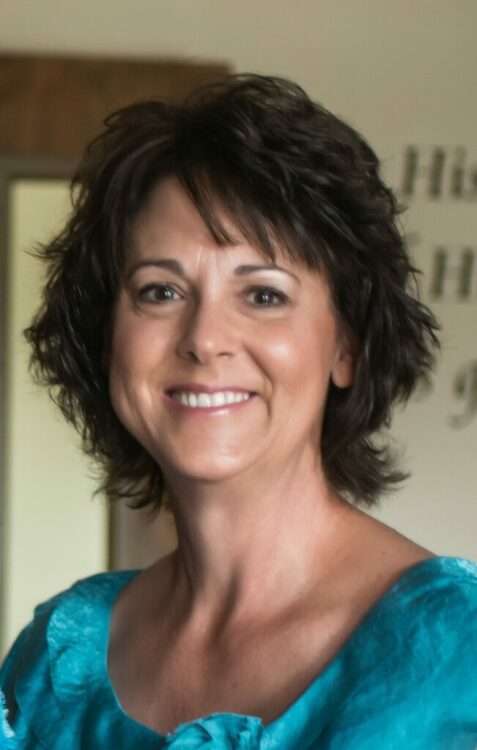Obituary of Becky Castillo
Becky Diane Castillo, age 64, resident of Marshall, MO, died Saturday, March 12, 2022, at Fitzgibbon Hospital ER in Marshall, MO. She was born July 20, 1957, in Ft. Scott, KS, the daughter of Arthur and Neva Ruth Wolfe Bolden.
She graduated from Fort Scott high school with the class of 1976. Becky married Richard Castillo on October 20, 1979, in Fort Scott. She worked for many years as a floral designer. Becky enjoyed listening to music and dancing. She was a very good cook and baker. She loved her husband, and family, especially her many nieces and nephews. She loved the Lord Jesus, and it was apparent in the way she lived her life.
Survivors include her husband Richard of the home; 4 brothers, Gary Bolden and wife Kristy, Pittsburg, KS, John Bolden and wife Adele, Carl Junction, MO, Dennis Bolden and wife Joyce, Lisbon Falls, NE, and Douglas Bolden, Fort Scott, KS; a brother-in-law, Jerry Poyner, Fort Scott, KS; and many nieces, nephews, great nieces, and great nephews.
She was preceded in death by a sister, Linda Poyner, and her parents.
Funeral services will be held at 11:00 AM Friday, March 18th, at the Cheney Witt Chapel.
Burial will follow in the Evergreen Cemetery.
The family will receive friends from 10:00 AM until service time Friday at the funeral home.
Memorials are suggested to the American Kidney Foundation and may be left in care of the Cheney Witt Chapel, PO Box 347, 201 S. Main St., Fort Scott, KS 66701. Words of remembrance may be submitted to the online guestbook at cheneywitt.com.
New Federal Advisory Committee for Urban Agriculture Meets March 23-24
WASHINGTON, March 8, 2022 – The U.S. Department of Agriculture (USDA) will host the first public meeting of the inaugural Federal Advisory Committee for Urban Agriculture and Innovative Production on March 23-24, 2022. The public – including urban producers– is encouraged to attend.
“I look forward to working with this new urban agriculture federal advisory committee,” said Agriculture Secretary Tom Vilsack. “The committee’s valuable insights and expertise will provide critical guidance to help us better serve urban agricultural producers, strengthen local food systems, and increase equity and access to healthy, local food.”
The new federal advisory committee is part of USDA’s efforts to support urban agriculture, creating a network for feedback. Members were announced last month, and include agricultural producers, and representatives from the areas of higher education or extension programs, non-profits, business and economic development, supply chains and financing.
About the Meeting
USDA’s Office of Urban Agriculture and Innovative Production is coordinating the meeting, which runs from 11 a.m. to 3:30 p.m. ET on March 23 and 24, 2022. To attend, register by March 18, 2022.
At the meeting, committee members will discuss administrative matters and consult on the National Institute of Food and Agriculture’s Notice of Funding Opportunity for the Urban, Indoor and Emerging Agriculture grants.
Members of the public who wish to submit comments or questions related to urban agriculture may submit them via www.regulations.gov.
Comments must be submitted by March 18, 2022.
For special accommodations, please contact Leslie Glover at (602) 395-9536 or [email protected].
Additional details are available in the March 8, 2022 Federal Register notice and online at farmers.gov/urban or on the committee’s webpage.
USDA and Urban Agriculture
The Federal Advisory Committee for Urban Agriculture and Innovative Production is part of a broad USDA investment in urban agriculture. Other efforts include:
- Grants that target areas of food access, education, business and start-up costs for new farmers, and policy development related to zoning and other urban production needs.
- Cooperative agreements that develop and test strategies for planning and implementing municipal compost plans and food waste reduction plans.
- Investing $260,000 for risk management training and crop insurance education for historically underserved and urban producers through partnerships between USDA’s Risk Management Agency (RMA) and the University of Maryland, University of Connecticut, and Michigan State University Center for Regional Food Systems.
- Providing technical and financial assistance through conservation programs offered by USDA’s Natural Resources Conservation Service (NRCS).
- Organizing 11 Farm Service Agency (FSA) urban and suburban county committees. FSA will organize additional committees.
The Office of Urban Agriculture and Innovative Production was established through the 2018 Farm Bill. It is led by NRCS and works in partnership with numerous USDA agencies that support urban agriculture. Its mission is to encourage and promote urban, indoor, and other emerging agricultural practices, including community composting and food waste reduction.
More information is available at farmers.gov/urban and the new Federal Advisory Committee for Urban Agriculture and Innovative Production website at www.usda.gov/partnerships/advisory-committee-urban-ag-innovative-production.
Additional resources that may be of interest to urban agriculture entities include grants from USDA’s Agricultural Marketing Service and National Institute of Food and Agriculture as well as FSA loans.
USDA touches the lives of all Americans each day in so many positive ways. Under the Biden-Harris Administration, USDA is transforming America’s food system with a greater focus on more resilient local and regional food production, fairer markets for all producers, ensuring access to safe, healthy, and nutritious food in all communities, building new markets and streams of income for farmers and producers using climate smart food and forestry practices, making historic investments in infrastructure and clean energy capabilities in rural America, and committing to equity across the Department by removing systemic barriers and building a workforce more representative of America. To learn more, visit usda.gov.
#
USDA is an equal opportunity provider, employer, and lender.
Obituary of Richard Hedges
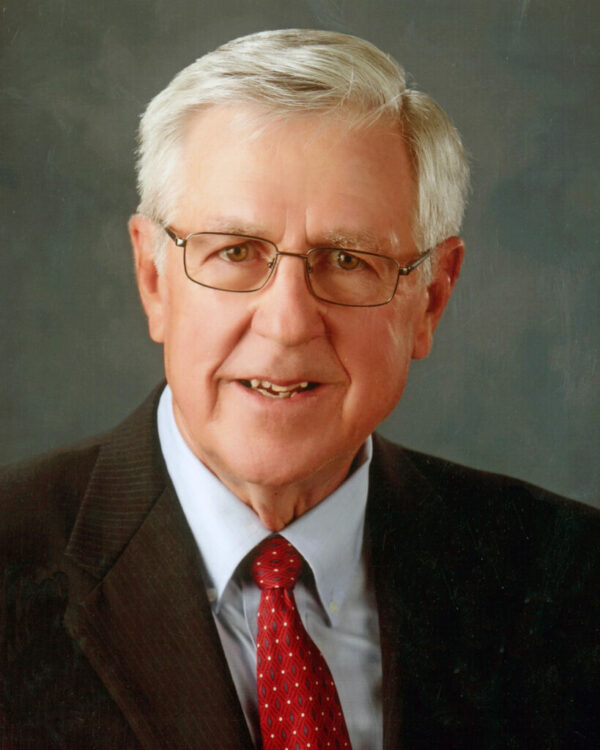 Richard (Dick) Daniel Hedges was born August 22, 1938 to Lawrence and Marjorie (Daniel) Hedges in Fort Scott, KS. He grew up on a farm near Blue Mound, attended Blue Mound schools graduating from Blue Mound High School in 1956.
Richard (Dick) Daniel Hedges was born August 22, 1938 to Lawrence and Marjorie (Daniel) Hedges in Fort Scott, KS. He grew up on a farm near Blue Mound, attended Blue Mound schools graduating from Blue Mound High School in 1956.
Growing up, he was involved in a number of school activities including sports, music, FFA, annual and school paper staff. His senior year he was invited to participate in the National FFA band playing his clarinet.
After an active athletic career in high school, Dick enrolled at Baker University and made an impact on the football team playing center and nose guard. Weighing in at 170 lbs., he made up for his lack of size by playing with intensity. He lettered all four years and was named to the 1st team All-Kansas Athletic Conference team his junior and senior years. He was inducted into the Baker University Athletic Hall of Fame in 2008.
Following graduation from Baker, he began a career that would take him from teaching and coaching in several high schools in Kansas to the presidency at Fort Scott Community College and being named to the Kansas Board of Regents. He managed by walking around, making recorded lists, delegating tasks and was very good at “getting things done”.
He married Karen Prather, a co-teacher at Baldwin High School December 27, 1964. They had two sons, Lance and Kyle. Both Karen and Dick were active in their respective schools, church and community. As a family they enjoyed a wide variety of sports, outdoor activities, hunting, fishing and traveling . Karen died unexpectedly in August of 2006.
A Christmas note reconnected Dick to Janice (Jan) Strecker in 2010. Their families had become good friends during the two years Dick worked in Hutchinson, KS. Dick and Jan were married August 14, 2011. After three retirements by each of them, they opened a bookstore, Hedgehog.INK!, in downtown Fort Scott in October of 2018.
Dick has been a member of the Fort Scott United Methodist Church for 54 years, he wrote a weekly column for the Fort Scott Tribune for 52 years. He was a teacher, coach, principal and FSCC president three different times. He had short stints in private industry, Greenbush Educational Center and Johnson County Technical School. He served the community of Fort Scott as a city commissioner – 14 years and mayor 3 years. He served on the Mercy Hospital Board, FSCC Board of Trustees and Endowment committee, Area Community Foundation Board, as well as many other leadership roles. He was instrumental in the building of the Ellis Fine Arts Center and creating the Gordon Parks Museum. He was a member of the Fort Scott Rotary Club.
Dick is preceded in death by an infant brother, his parents, his wife Karen and son Lance.
Survivors include his wife, Jan of the home, son Kyle and wife Tina Keating Hedges, Bolivar, MO, daughter-in-law Stacey Hedges, Garnett, KS, step-sons Scott Strecker Portland, OR and Stuart Strecker Lawrence, KS, one brother Tom Hedges, Kansas City, MO, one sister Donna and husband Wilfred Lehmann, LeRoy, KS. Six grandchildren, 5 step-grandchildren, 2 great-grandchildren with one more to arrive in July. A number of nieces, nephews and friends.
Dick has impacted the lives of more people than he will ever know. His style of teaching, coaching and leadership have inspired those who knew and worked with him to reach higher, to learn more and to pay it forward. He was a true public servant in every sense of the word.
Rev. Christopher Eshleman will conduct funeral services Wednesday, March 16, at 10:30 a.m. at the First United Methodist Church.
Burial will follow in the Evergreen Cemetery Fort Scott, KS.
A visitation will be held at Cheney Witt Chapel Tuesday, March 15 from 5:00 to 7:00 p.m.
Memorials may be made to the Fort Scott Community College Foundation or Fort Scott First United Methodist Church and may be left in care of the Cheney Witt Chapel, 201 S. Main, P.O. Box 347, Ft. Scott, KS 66701. Words of remembrance may be submitted to the online guestbook at cheneywitt.com.
Chamber Coffee at Briggs Auto on March 17
The Fort Scott Area Chamber of Commerce invites members and guests to the Chamber Coffee this Thursday, March 17th at 8am. This week’s coffee will be hosted by Briggs of Fort Scott as they celebrate their 6th year anniversary. Located in the Ford Showroom at 1819 S. Main St. Coffee and light refreshments will be served.
At Briggs of Fort Scott their No.1 focus is on building business relationships with their customers. Their goal isn’t to sell you a car, but to listen so they can make your experience fast, easy, and hassle-free. Whether you’re buying a car or are bringing your vehicle in for service, you can count on their team to make the entire process a breeze. Most importantly, you can expect this level of award-winning, VIP customer service consistently at each of their four Briggs of Fort Scott locations. These include Briggs Chrysler, Dodge, Jeep, RAM of Fort Scott, Briggs Ford of Fort Scott, Briggs Toyota of Fort Scott and Briggs Chevrolet of Fort Scott. See for yourself just how fast, easy, and fun it is to shop at Briggs of Fort Scott with a visit to any of their locations today!
Contact the Chamber of Commerce at (620) 223-3566 for more information.
***
Joshua Kobernat: New Keyhole Ministry Director
He has served with assisting his church’s Vacation Bible School and taught Sunday School classes.
Ryan Goodbody, Emily Diebolt, Judy Hood and Marge Madison.
Soil Testing – First Step in Garden Preparation
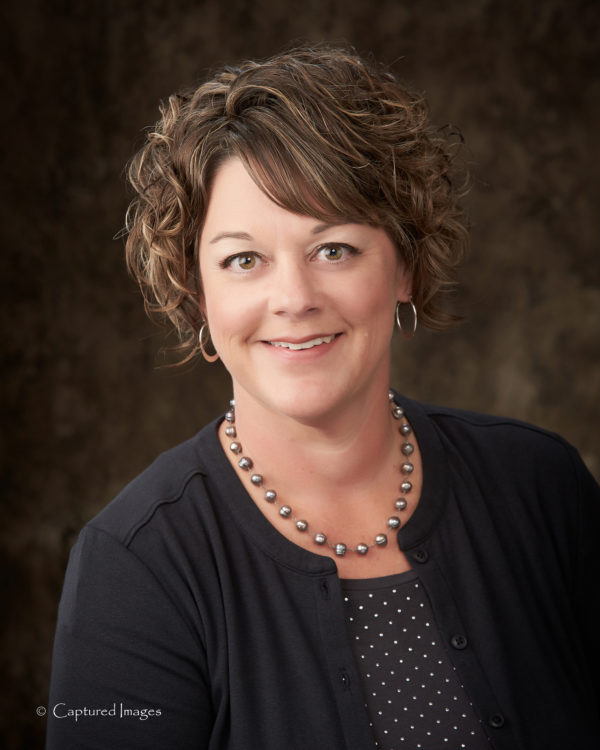
District Extension Agent, Horticulture
Southwind Extension District
111 S. Butler
Erie, KS 66733
Office: 620-244-3826
Cell: 620-496-8786
Whether you are new to gardening or have been gardening for years, all gardeners should think about their soil fertility levels. Just looking at your plants won’t provide the proper information. Soil fertility is something that cannot be seen, felt or guessed about. As we get ready for planting time, consider having a soil analysis on your garden soil.
A soil test reveals the base line nutritional values of soil. From this test, the type and amount of fertilizer to be used can be determined. In addition, a soil test will find the pH level of the soil. This kind of information is basic for developing a good plant nutrition program. For example, if your soil doesn’t need phosphorus or potassium – which may very well be the case – applying it is a waste of time and money.
Nutrient levels can change over time of course. K-State recommends testing garden soil every three to five years. But soil tests are only as good as the samples submitted. To take a soil sample, follow these steps:
- Mentally divide your garden into areas. Each area should be fairly uniform in soil color, texture and slope, as well as ability to grow plants. Avoid or sample separately any places that could give misleading results: low spots, old fence rows, etc.
- You will need a clean bucket and a soil probe or spade. Take 10 thin core or slices from different spots in the garden. Include soil down 6 to 8 inches deep. This is much easier to do if you don’t take samples when the soil is really wet.
- Put all samples into a bucket, crumble and mix them thoroughly. Remove any stones, grass, roots and thatch. Then take out a cup to a pint’s worth of soil, air dry it, and put it in a sealable container. You can spread the soil out on a newspaper to dry.
- Put soil into a lock-seal plastic bag or plastic food container. Label each container with your name, mailing address and phone number.
- Bring soil sample to the Southwind District Extension Office in Erie, Iola, Fort Scott or Yates Center. Chanute residents can drop soil of at Breiner’s Feed Store for pick-up. Soil sampling is $15 per sample. Sample results are usually available in 7 to 10 days.
Phosphorus and potassium levels tend to build up in the soil. Excess can harm growth, or worse yet, leach out and pollute streams and lakes. In recent years, the soil testing lab at K-State has found some Kansas garden and landscape samples contained so much phosphorus and potassium that testing couldn’t measure the amounts. The results literally were “off the charts.” By soil testing, you can determine if these nutrients need to be applied or not.
Did your garden just not perform the way you wanted it to last year? It could have been because the soil fertility level is not what it should be or the soil pH is off. Soil testing will determine that.
Don’t put off sampling until after the garden is planted. Do it now so soil fertility corrections can be made!
Krista Harding is a K-State Research and Extension Horticulture agent assigned to Southwind District. She may be reached at [email protected] or 620-244-3826.
K-State Research and Extension is an equal opportunity provider and employer.
KS Program Supports Innovation Technology For Companies
Proof of Concepts Applications Open through the End of the Month
TOPEKA – Lieutenant Governor and Secretary of Commerce David Toland today announced that the Kansas Innovation & Technology Enterprises (KITE) Proof of Concept (POC) applications for the third quarter of fiscal year 2022 are being accepted through Thursday, March 31. The POC program helps cultivate and support innovation in Kansas by supporting companies with advanced, innovative technology.
The program is designed to fill a need for support where typical funding mechanisms are not available, acting as a bridge to commercialization and funding by angel or venture investors. The program aims to assist in:
- the establishment of promising new technology-based entrepreneurial ventures within the State; and
- the commercialization of inventions resulting from research conducted at Kansas public universities.
“Promoting innovation and entrepreneurship is one of the key initiatives in our Framework for Growth,” Lieutenant Governor and Commerce Secretary David Toland said. “Driving innovation in our economy is a critical component to attracting businesses and people to Kansas. I’m pleased we are able to offer this funding to help Kansas entrepreneurs develop new technologies and reach their goals.”
The POC funding is designed to help develop a project/product to the point where the entity can raise significant amounts of external capital. Typically, these awards will be used for commercial assessment and/or technology validation, such as advanced testing or prototype development.
Applications for POC funding are accepted throughout the year. The POC review committee meets on a quarterly basis to review proposals and make recommendations for funding in two categories: For-profit Entity and Faculty Led. Award amounts can be between $5,000 – $25,000 per application. Award notifications for the application period ending March 31 will be made in late April.
POC applications can be found here. For additional information, please contact Wade Wiebe at [email protected].
About the Kansas Department of Commerce
As the state’s lead economic development agency, the Kansas Department of Commerce strives to empower individuals, businesses and communities to achieve prosperity in Kansas. Commerce accomplishes its mission by developing relationships with corporations, site location consultants and stakeholders in Kansas, the nation and world. Our strong partnerships allow us to help create an environment for existing Kansas businesses to grow and foster an innovative, competitive landscape for new businesses. Through Commerce’s project successes, Kansas in 2021 was awarded Site Selection Magazine’s Governor’s Cup award, Area Development Magazine’s Gold Shovel award and was named Site Selection Magazine’s Best Business Climate in the West North Central region of the United States. Find the Department’s strategic plan for economic growth here: Kansas Framework for Growth.
The Bourbon County Sheriff’s Office Daily Reports March 14
Bo Co Democrats Meet March 20
The Bourbon County Democrats will be holding their regular monthly meeting on Sunday, March 20 at 2 p.m. in the Heritage Room of the Administration Building at Fort Scott Community College, 2108 S. Horton.
Submitted by
Carol MacArthur
Winds of Life by Carolyn Tucker
Keys to the Kingdom
Wind is a natural movement of the air and it can be a powerful invisible force to be reckoned with. A few years ago on a warm sunny day, my husband and I headed east to Missouri on a bike ride. On the return trip, we encountered a strong southerly crosswind so Jimmy had to lean the Suzuki Boulevard heavily to the left just to keep it upright. He used counter pressure against the relentless high winds. A gentle breeze is always preferred, but you don’t always get what you want. We had no control over the weather, so he had to make appropriate maneuvers in order for us to make it back home in one piece. I knew I could trust my husband to get us safely home because he’d experienced rough rides before and knew how to handle them.
The apostle Paul experienced dangerous storms at sea in Acts Chapter 27. He and 275 others encountered strong headwinds that made it difficult to keep the ship on course. They had several days of rough sailing as they beat into the wind with great difficulty. They also encountered typhoon-strength winds and had to let the ship run before the gale. Even though the unstoppable storm raged several days, an angel told Paul not to be afraid and to take courage. They eventually shipwrecked on an inhabited island, but no lives were lost and the islanders treated them well.
Smooth sailing is not always on life’s appointment book. Spiritually speaking, I’ve had to batten down the hatches to do my part in keeping my ship from splintering into a million pieces. And that’s why it’s important to know and believe in the Master of the Wind. We can trust God to get us safely through the troubled waters when the breeze turns into an unexpected gale. “He shall not be afraid of evil tidings; his heart is firmly fixed, trusting (leaning on and being confident) in the Lord” (Psalm 112:7 AMP). I like the word “fixed“ because it means fastened securely in position; stable, rooted, or anchored. My part is to fix my heart on Jesus and believe the truth of His Word. Feelings are fickle, so I can’t be fixed on them. Believers are well prepared for a difficulty or crisis when they’re anchored in the Lord and trust confidently in His Word.
One of my favorite songs in the 1953 Lillenas hymnal is “I‘ve Anchored in Jesus,” written by L.E. Jones. The lyrics for verse one and the chorus are: “Upon life’s boundless ocean where mighty billows roll, I’ve fixed my hope in Jesus, blest Anchor of my soul. When trials fierce assail me as storms are gathering o’er, I rest upon His mercy and trust Him more. I’ve anchored in Jesus, the storms of life I’ll brave. I’ve anchored in Jesus, I fear no wind or wave. I’ve anchored in Jesus for He has power to save. I’ve anchored in the Rock of Ages.”
If Christians wait until the crisis hits to batten down the hatches, we’ve wasted valuable prep time. We have to live ready for a storm, not in fear but, anchored in trust and confidence in the Captain who’s never lost a ship. Jesus is our counter pressure against the fierce winds of life. Paul’s prayer for the Ephesians is for us today: “I pray that from His glorious, unlimited resources He will empower you with inner strength through His Spirit. Then Christ will make His home in your hearts as you trust in Him. Your roots will grow down into God’s love and keep you strong” (Ephesians 3:16,17 NLT).
The Key: When the breeze turns into a gale, lay hold of The Anchor and ride it out.
Avian Flu Confirmed in Kansas
USDA Confirms Highly Pathogenic Avian Influenza in Backyard Flock in Kansas
For Immediate Release:
March 12, 2022
For more information:
Heather Lansdowne
785-564-6706
[email protected]
MANHATTAN, Kansas — The U.S. Department of Agriculture’s Animal and Plant Health Inspection Service has confirmed the presence of highly pathogenic avian influenza (HPAI) in a non-commercial backyard mixed species flock (poultry) in Franklin County, Kansas. Samples from the flock were tested at the Kansas State Veterinary Diagnostic Laboratory and confirmed at the USDA–APHIS National Veterinary Services Laboratories (NVSL) in Ames, Iowa.
The Kansas Department of Agriculture is working closely with USDA–APHIS on a joint incident response. KDA officials quarantined the affected premises, and birds on the property will be depopulated to prevent the spread of the disease.
Anyone involved with poultry production from the small backyard chicken owner to the large commercial producer should review their biosecurity activities to assure the health of their birds. Find guidance on biosecurity on the KDA Division of Animal Health webpage at agriculture.ks.gov/AvianInfluenza. More biosecurity resources as well as updates on the current HPAI status nationwide can be found on the APHIS website at: https://www.aphis.usda.gov/aphis/ourfocus/animalhealth/animal-disease-information/avian/avian-influenza/2022-hpai.
Highly pathogenic avian influenza (HPAI) is a highly contagious viral disease that can infect chickens, turkeys and other birds and can cause severe illness and/or sudden death in infected birds. Attentively monitor your birds for symptoms of HPAI which include: coughing, sneezing, nasal discharge, and other signs of respiratory distress; lack of energy and appetite; decreased water consumption; decreased egg production and/or soft-shelled, misshapen eggs; incoordination; and diarrhea. Avian influenza can also cause sudden death in birds even if they aren’t showing other symptoms.
If these symptoms are observed in your birds, immediately contact your veterinarian. If you don’t have a regular veterinarian, contact KDA’s Division of Animal Health office toll-free at 833-765-2006.
According to the U.S. Centers for Disease Control and Prevention, the recent HPAI detections do not present an immediate public health concern. No human cases of these avian influenza viruses have been detected in the United States. Birds and eggs from the infected flock will not enter the food system. As a reminder, the proper handling and cooking of all poultry and eggs to an internal temperature of 165 ˚F is recommended as a general food safety precaution.
As part of existing avian influenza response plans, federal and state partners are working jointly on additional surveillance and testing in areas around the affected flocks. The United States has the strongest AI surveillance program in the world, and USDA is working with its partners to actively look for the disease in commercial poultry operations, live bird markets and in migratory wild bird populations.
For more information about HPAI, including current status of the confirmed cases in other states as well as more information about biosecurity for your flock, go to KDA’s avian influenza webpage at agriculture.ks.gov/AvianInfluenza or call KDA at 833-765-2006.





